A VW electric van is joining the ever-growing list of Volkswagen concepts, a list that’s seemingly focused on electrification. Stepping back to its roots, the German automaker is looking to bring a new VW electric bus to both consumer and commercial services. Will the VW ID BUZZ prove to be a lively entry and succeed in illuminating the company’s transition towards electrification?
Volkswagen has been very loud about its future electric car plans. While the brand slept through a lot of electric progress the past decade, they are optimistic about its chances of being a dominant force. Leveraging its vast production capabilities and capital, VW clearly wants to make up for lost time.
The plan is to produce one million EVs annually in 2023. Afterward, in 2025 we should see 1.5 million EVs made. VW has been on a roll announcing vehicles left and right to fill every possible niche. Trying to not leave any need unmet, the brand announced their new VW electric van, the ID BUZZ, hoping to bring back a classic.
[expand title=” ” expanded=”true” trigclass=”index” class=”index-spoiler”]
[/expand]
VW ID Buzz
The new Volkswagen electric bus made its debut as a prototype during the North American International Auto Show in 2017. At the time, it was not stated if the electric bus would eventually make its way into production. The Volkswagen ID BUZZ received much fanfare due to its fun aesthetics and the fact that it was a re-imagining of the iconic Type 2 microbus.
After such a large audience and a “large number of letters and emails from customers who said, ‘please build this car,’” Volkswagen announced its intention to bring the ID BUZZ into early production stages eight months later.
It probably also helped that VW Boss, Dr. Hebert Diess, considers the car, “the most beautiful and most exciting electric car in the world”.
The Volkswagen electric bus will look to follow the first wave of VW EVs. Meanwhile, the ID.3 and ID.4 will occupy more common vehicle segments.
It’s safe to say that the VW ID BUZZ interior that we’ve seen is certainly not the final production version. With the VW electric van still distantly away, it’s hard to speculate on what the final product will look like. We imagine that the final VW ID BUZZ interior will look to capture the same relaxed feeling of the concept. Thanks to the removal of the engine and transmission tunnel, VW will offer occupants more room than ever before. This works great for the future electric van community who will surely make use of every square inch available.
As with most EV concepts, the dashboard is rather bare with only a center screen and steering wheel. I say steering wheel, but well, it’s more of a rounded trapezoid. It also doesn’t have any holes for you to wrap your hands around to get a grip. We assumed that this visually pleasing but user-unfriendly steering wouldn’t make it to production but with the new Model S steering wheel making it to market, anything is possible.
Seating for All
One of the most unique features of the ID BUZZ is the rail system built for its seats. Thanks to the increased interior space from going electric, the VW electric van cabin becomes very flexible. Every seat is able to move around, folded flat, folded into tables, and swiveled to provide the exact seating arrangement that you need.
Under full autonomy, the Volkswagen concept goes so far as to show that the driver is also able to swivel their chair around and talk with the rest of the passengers.
As stated previously, the production version is still a bit away, so we don’t even know if this rail system will make the cut. As such, the VW ID BUZZ seating capacity is hard to gauge. The concept showed four captain’s chairs, and a two-person bench, giving us six occupants. Will that be the case for the production version? We don’t know.
This VW electric bus truly is the closest you will get to a “living room on wheels”, and I hope that the rail system will make its way into the production model.
The new VW electric bus more or less retains the shape of its original gasoline-powered ancestor. As of right now, the VW ID BUZZ dimensions are as followed:
4.94m Length x 1.97m Width x 1.96 Height (16.2’x6.46’x6.43’)
Compared to the Type 2, it is significantly longer and slightly wider, but retains practically the same height. The dimensions of the generation 1 VW Type 2 were: 4.2m Length x 1.72m Width x 1.94m Height (13.77’x5.64’x6.36’).
In addition to the similar proportions, the company adopted some of the design features of the original. These include the two-tone V-nose, rectangular windows, and rear side air vents in its new, refreshed VW electric bus.
Colors
With the release date so far away, it’s hard to know what the VW ID BUZZ colors will end up being. If VW does intend to continue the spirit of the original VW microbus, then we hope that it will carry a wide color gamut. Just one search of the original Type 2 and you will see a slew of vibrant colors.
Looking at the configurator for the California 6.1 and Transporter 6.1 Kombi, we see that there are already some rather vibrant options available today. Still, monotone grays, blacks, and whites dominate the options list in terms of colors. But, perhaps that won’t be the case with the upcoming VW electric microbus.
The VW ID BUZZ specs are unknown for the most part. When the concept was initially shown, some tentative specifications released, but that was a few years ago at this point. Below you will find listed specifications for the VW electric van, but do take it with a grain of salt.
| RWD | AWD | |
|---|---|---|
| Power | 200kW (268hp) | 275kW (369hp) |
| Battery | 83kWh | 111kWh |
| Range | 270-373 miles (WLTP) | |
| Charge Rate | 150 kW | |
The two different specifications should appeal to both customers that just want a VW electric van and don’t actually do road trips, and those who need the ultimate electric road trip vehicle.
Battery
Depending on the battery pack, the VW ID BUZZ range will be about 270-373 miles. The 111 kWh battery version will have an estimated WLTP-rated range of 373 miles. The VW ID Buzz range will be close to 270 miles on the 83 kW battery option. As of the writing of this article, there are no other electric microbuses to compare to.
The range estimates for the VW electric van use the WLTP testing cycle which is known sometimes to be more optimistic than the EPA test. So if these numbers maintain in the production version, then look for the EPA values to be noticeably lighter. While 270 miles does place the VW electric van range in acceptable figures, given that an electric microbus’ envisioned use is for road trips, it might not be the most popular option unless there is a large price difference. However, opting for the larger battery version should prove to be enough for almost all cross-country tourists.
As of right now, the VW electric bus will have a charging rate of 150 kW, meaning a 0-80% charge will take 30 minutes. If you’re envisioning a cross-country road trip, you are going to have a lot of stops. Although there are few cars, if any, I would imagine are more comfortable to wait around in.
As always, it’s important to note that battery technology is quickly evolving, so final ranges could end up being higher.
ID Buzz Cost
It is going to be a while before we get any VW ID BUZZ prices. We can gauge an estimate of the VW electric bus price by seeing how much more expensive the ID3 was to the average VW Golf, its closest sibling in size and vehicle segment. After going on the VW UK website (since we can’t configure an ID3 in the US) I averaged out the starting prices of the trims of the Golf and ID3.
I found that there was a premium of about 27% between the average price of the Golf offerings and ID3 (£29,788 vs £38,075). This was skewed because there were three Golf trims under 30k, and none of the ID3 trims were sub-30k. If we apply that same price increase to the current 6.1 Kombi then we might get a very rough idea of the VW ID BUZZ cost. Looking at Kombi prices we get an average price of £34,683 and after applying a 27% premium we get £44,047.
Take off about 20% for VAT and convert to USD at the current exchange rate and you get a cost of about $48,000. This is of course a superbly rough estimate and as VW brings more efficient production and battery costs lower, the price should be even lower.
A starting price in the mid-$40k range would definitely make the ID BUZZ a great option.
Circling back to the interesting steering wheel on the ID BUZZ, it’s actually meant to retract into the dashboard. No, really.
The concept envisions the ID BUZZ with full autonomy allowing the driver to press the center of the wheel to begin activation. Under autonomous driving, the steering wheel would just be in the way so VW has found a solution with a retractable steering wheel. This would allow you to swivel your seat around and engage with your passengers.
Unfortunately, this dream won’t be the case as the ID BUZZ will not initially launch with that level of autonomy.
However, VW and ArgoAI are currently testing autonomous features on a commercial version of the VW electric van. The brand is looking to have this version of the ID BUZZ on the road by the middle of the decade and will look to be VW’s first autonomous car. The autonomous ID BUZZ will serve as a robotaxi within certain European urban areas, implying that it won’t reach full Level 5 autonomy by that point.
It’s up in the air if we in the US will ever get the robotaxi version of the ID BUZZ, or if those autonomy features will make their way to the non-commercial ID BUZZ eventually.
VW ID BUZZ production is still a considerable time away from starting. The German automaker is in the midst of converting its existing factories into EV-capable facilities. Previously, we received VW ID BUZZ news confirming the VW electric bus would be produced at their Hanover facility.
The Volkswagen Passenger Cars and Volkswagen Commercial Vehicles brands are working flat out on the transformation to the e-mobility era and the conversion of plants to e-mobility. The Volkswagen brand has now ordered more than 1,400 robots from Japanese manufacturer FANUC for its production facilities at Chattanooga (USA) and Emden. Volkswagen Commercial Vehicles has ordered a further 800 robots for its Hanover plant from ABB of Switzerland. The robots are to be mainly used for body production and battery assembly. The three plants are currently being prepared for the production of electric cars using highly advanced facilities. From 2022, the ID.4 is to be produced at Chattanooga (USA) and Emden, while the model known under the show car name of ID. BUZZ is to roll off the production line at Hanover.
In regards to how many of these VW electric microbuses we could expect to roll off the line on an annual basis, it’s anyone’s guess. While minivans are popular, especially for commercial purposes, I feel like VW will prioritize bringing out electric crossovers and compact cars.
VW ID Buzz Release Date
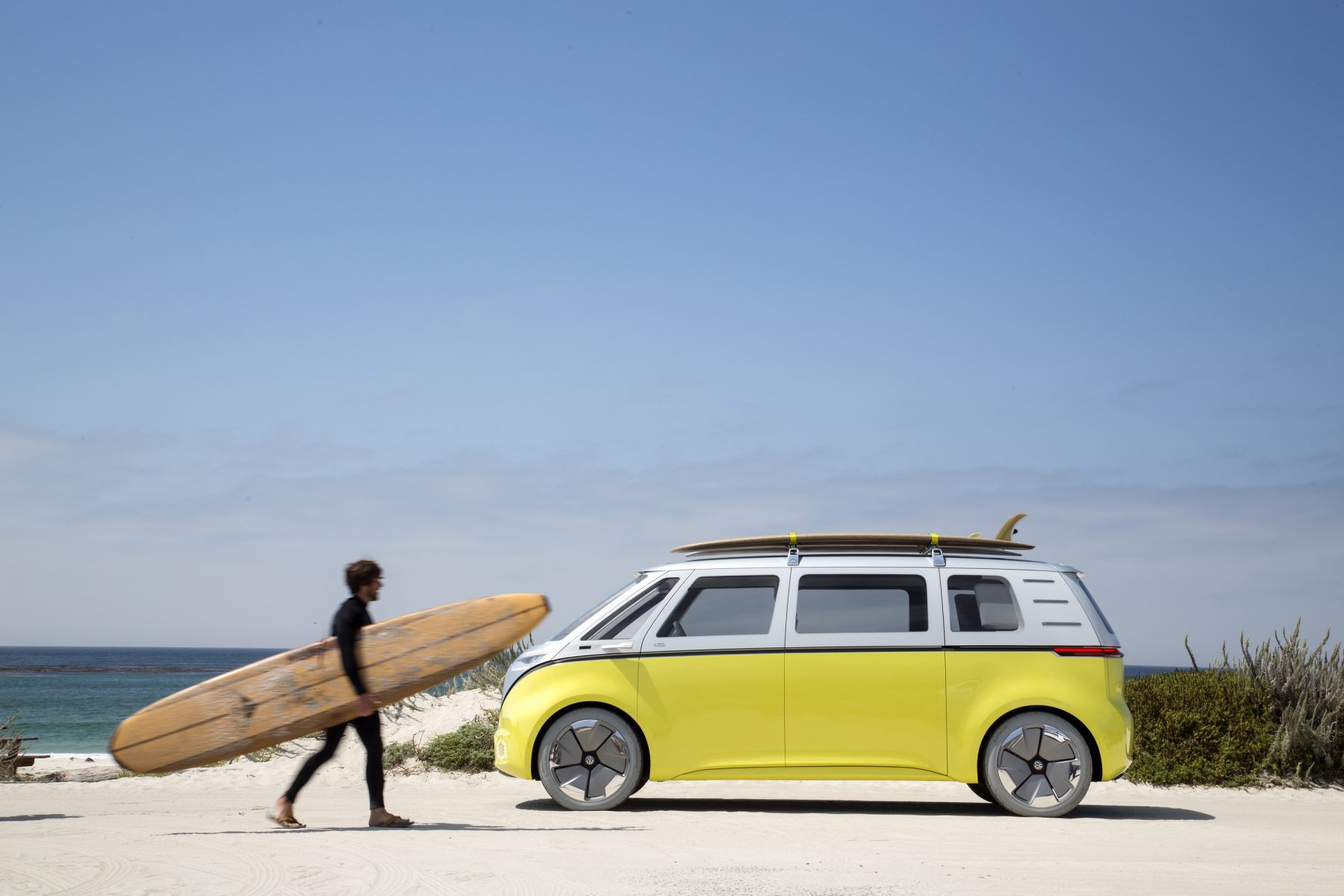
At this point, the Volkswagen ID BUZZ release date is slated to be sometime in 2022. The current VW electric bus we see is a hand-built prototype so it still has a long way to go before it enters production.
The most recent update for the VW electric bus release date was given by Carsten Intra, head of the brand’s Commercial Vehicles Division. The ID BUZZ will hit Europe in 2022, and then the US later in 2023. We in the US will not get the full scope of the ID BUZZ offerings, however. While in Europe the electric bus will be offered in two wheelbases and a passenger and commercial layout, the US market will only receive a long-wheelbase passenger version.
VW ID Buzz Pre Order
A Volkswagen ID BUZZ pre-order is not yet available. Look for pre-orders to open up whenever VW gives us a look at a more production-ready design.
Camping
Whenever you hear the words ‘camper van’, chances are that one of the VW microbuses popped up in your head. The Microbus has become synonymous with camping over the decades. While no Volkswagen electric van news has been given regarding the ID BUZZ, we would find it hard to believe Volkswagen not making a camping add-on or camping version of the ID BUZZ.
Currently, VW has a few camping van options available, the California 6.1 and Grand California (although that toes the line between minivan and RV). With these types of offerings already available, it gives us confidence that we will see a camper ID BUZZ.
In an effort to fulfill a utilitarian purpose as well as an “emotional” one, Volkswagen has shown off a VW ID BUZZ CARGO, a commercial Volkswagen electric van. This version of the VW electric microbus is built to serve as a cargo van.
Some of the differences from the regular VW ID BUZZ electric van include: a four-inch longer body, solar panels on the roof that add about 9 miles of range a day, no sliding doors, and 240-volt power outlets for power tools. The ID BUZZ CARGO features the same 111 kWh battery, but only has a single 201 hp rear motor. The Volkswagen electric van range is estimated at 340 miles based on the WLTP cycle.
Volkswagen states that the ID BUZZ Cargo release date would be as soon as 2022. Unfortunately, it will not make its way to the United States. The Volkswagen electric van price has also never been mentioned and it could go either direction as a commercial vehicle.
While there are no official VW charging stations, Electrify America stations can be seen as the de-facto charging stations for Volkswagen vehicles since the company itself built them. By the end of 2021, Electrify America looks to have over 800 charging stations. Each planned site will be no further than 120 miles from one another.
Additionally, Electrify America chargers can go up to 350 kW. So, if the VW ID BUZZ supports ultra-fast charging, a 0-80% charge can be done in just 15 minutes.
Of course, you don’t need a specific Volkswagen charging station to charge the ID BUZZ. It will most likely come with a CCS plug that enables it to charge at basically any charger.
According to the Department of Energy, there are currently 4,259 Level 2 and above charging stations that have a CCS plug, and that number will only grow as time goes on.
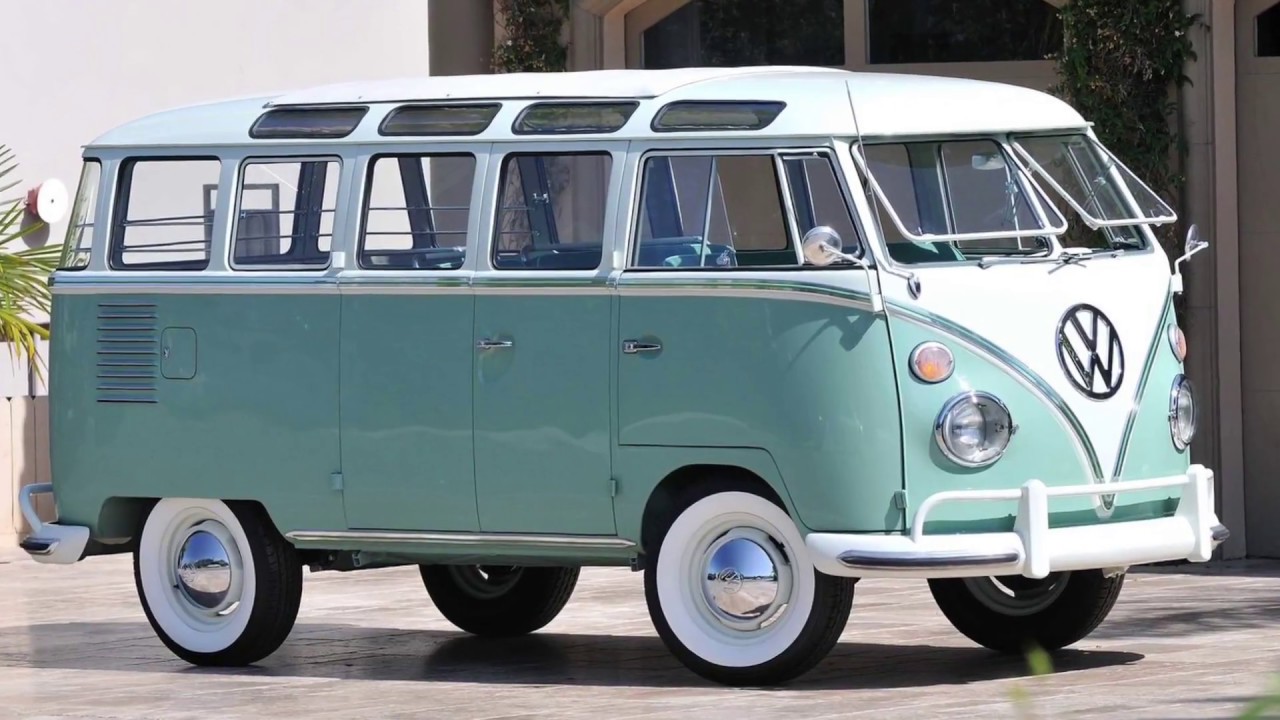
Now that we’ve looked at the electric microbus, let’s look at the original VW bus that started it all. The first generation Type 2 was produced in 1949. Called the Type 2, it was the second vehicle Volkswagen produced, the first being the equally iconic Beetle (Type 1).
The first generation VW Microbus was produced until 1967 in Europe and the US and until 1975 in Brazil. While its intended purpose was to serve as a utilitarian transport/cargo van, the Type 2 had become a symbol of the 1960s counterculture movement in the US. Dubbed by some as the “hippie van,” the Type 2 became very popular with those in the counterculture crowd.
The simplicity of the body and engine made it easy to fix and its spacious interior allowed large groups to travel together and even live inside of it. As such, the Type 2 is now one of the most recognizable vehicles in history. It holds a special place in the hearts of people that lived through those times and is idealized by those who wish they could have experienced those times for themselves.
The iconic VW Microbus would continue to go through model refreshes and is currently on its sixth generation. However, none of the new VW microbus generations seemed to be able to capture the magic of the original. We shall see if the new Volkswagen electric bus can recapture that spark.
VW ID BUZZ New
Check back here frequently for any VW ID BUZZ news.
FAQ
.
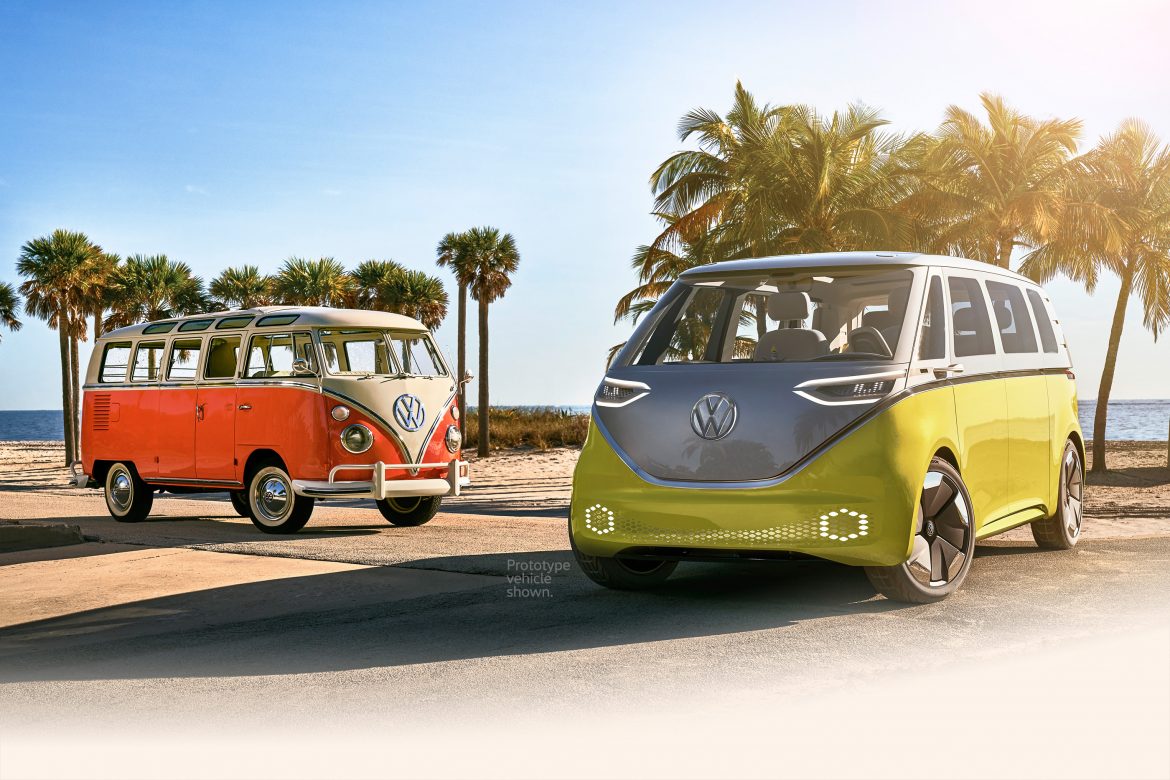
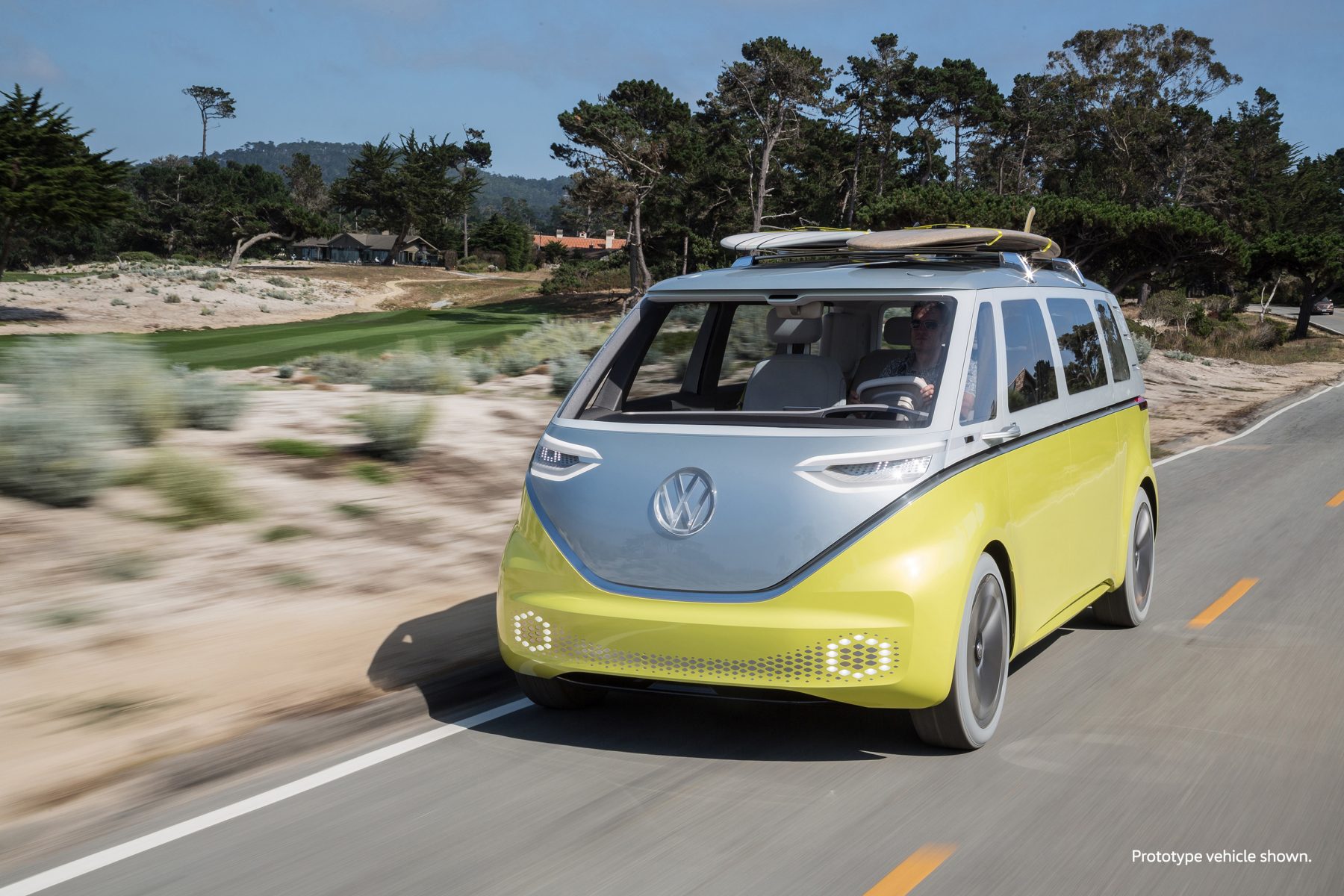
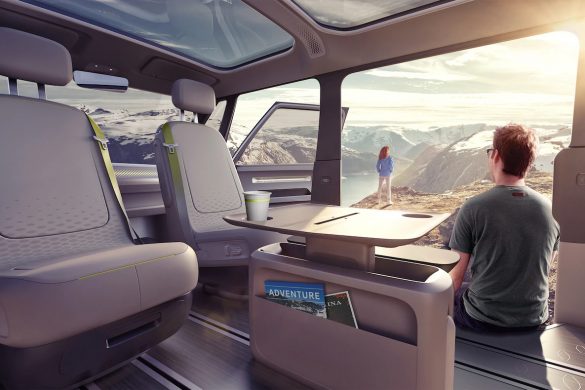
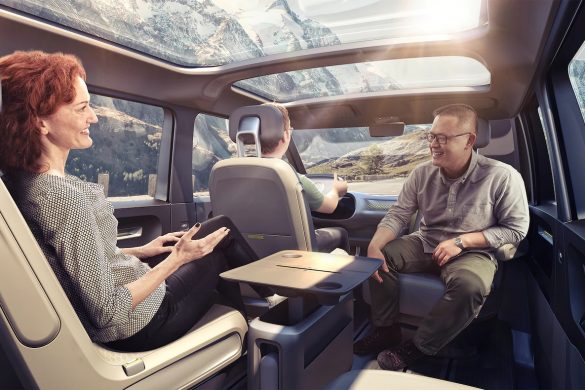
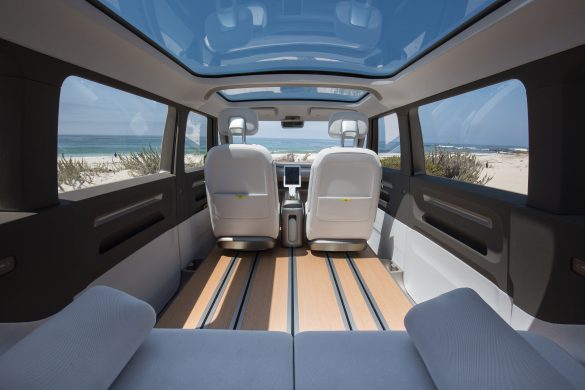
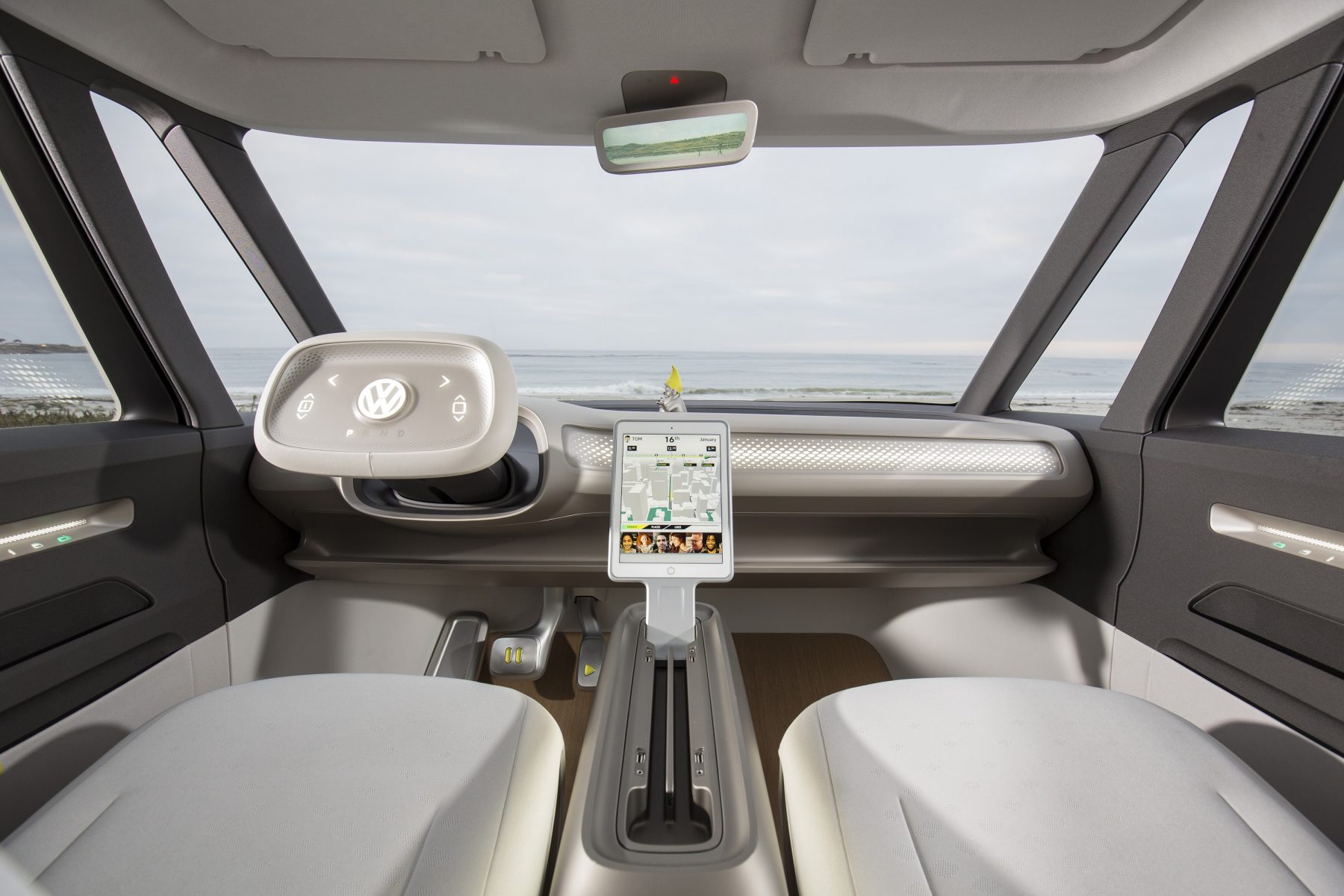
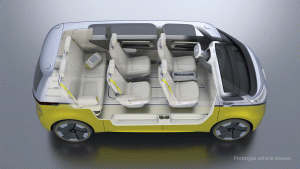
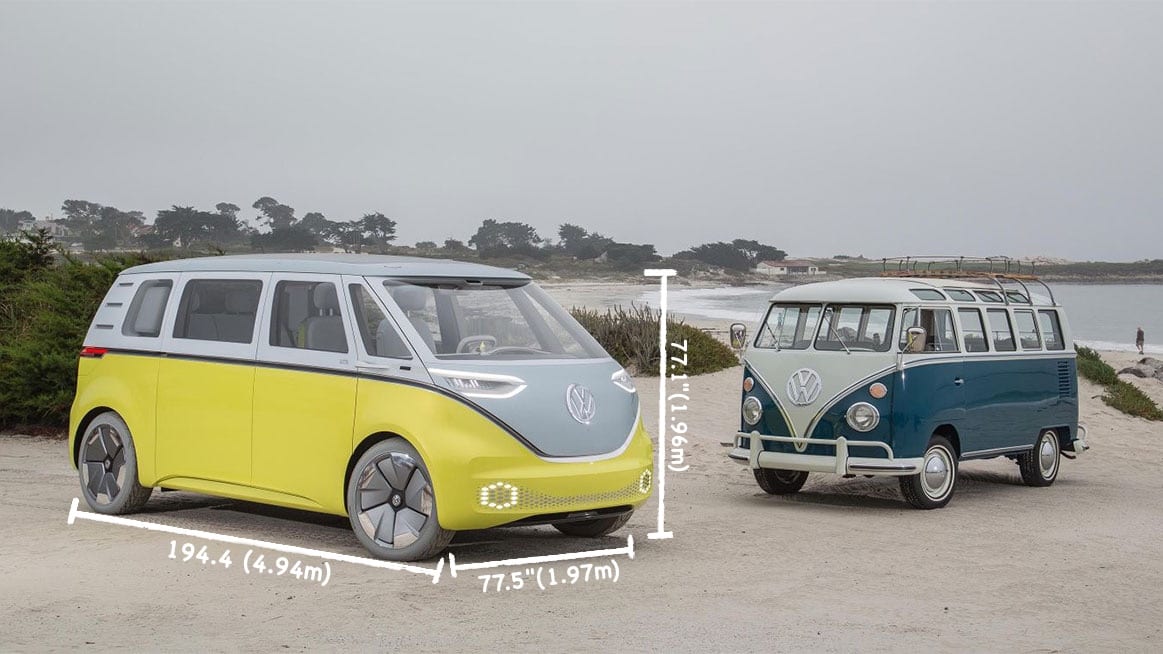
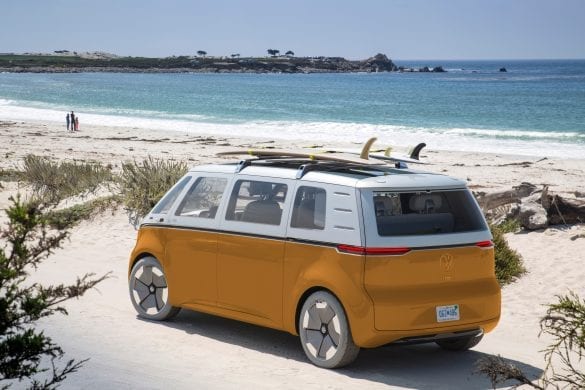
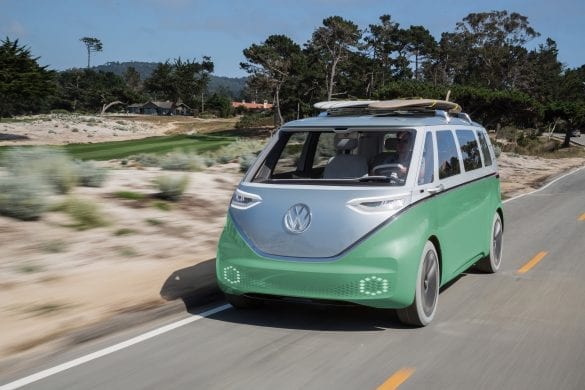
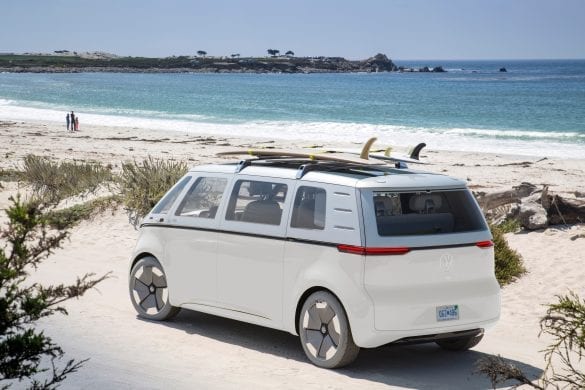
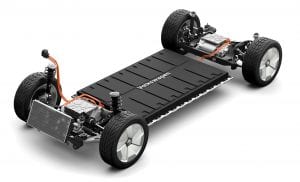
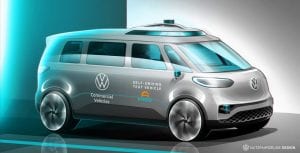
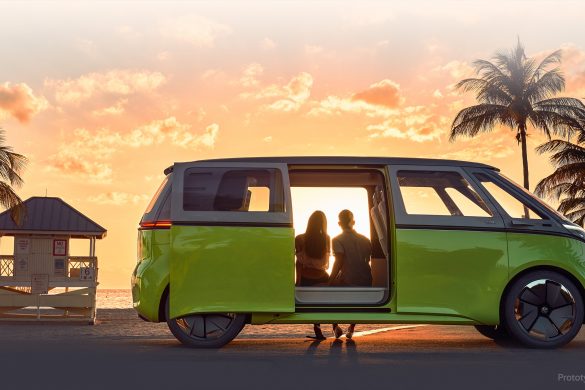
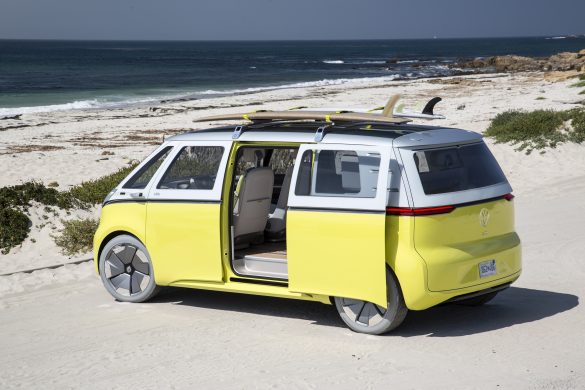
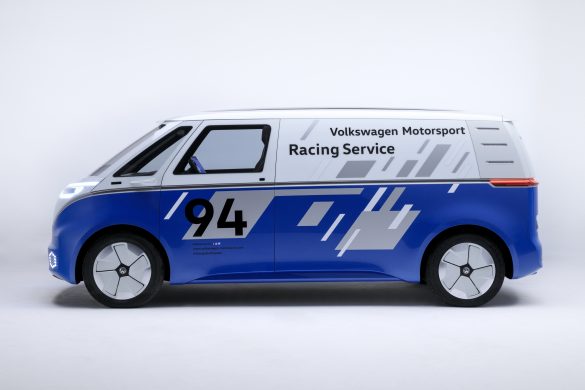
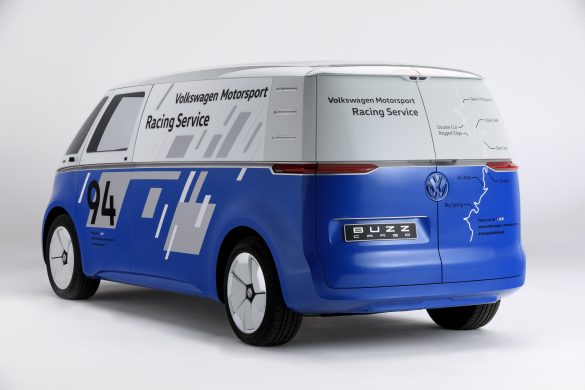
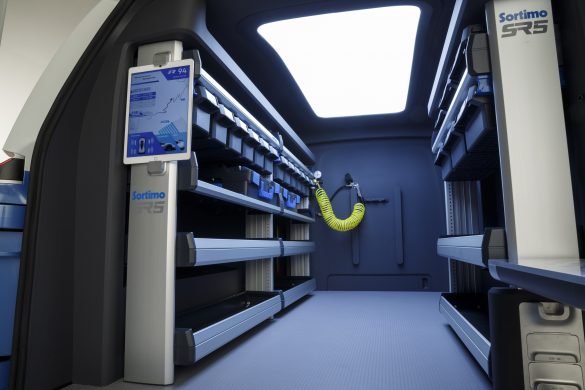
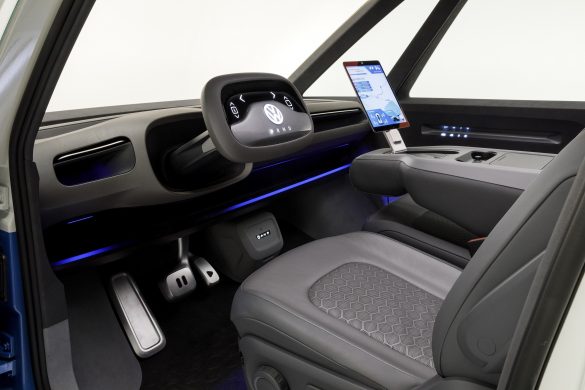
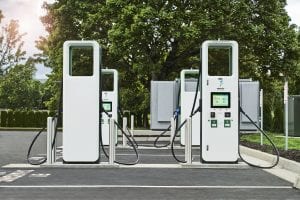
17 comments
I will buy one as i am sure the price will be less than a tesla, rivian, et cetera. Please give a 380 mile per charge version. will buy regardless. this will be fun
I have already bought my VW69 BUZ private plate. I will be on the waiting list as soon as I can £60k price same as top model T6.1. Hurry up VW put me on the UK list.
I’ve driven Type 2 VW buses for going on 60 years and they’ve always taken me to a simpler, more friendly and happier time. All through college a bus was second home to me and my friends for weekend camping and surfing trips all at a reasonable cost. The bus was simply a family member. The 60K price tag destroys any semblance to those days of freedom, fun and affordable transportation. What a shame. I really was looking forward to cruising an ID Buzz off into the sunset but for 60K I’ll take my 67 Beetle.
53K base and 63K loaded would seem correct as this is as much a practical vehicle as an emotional buy. I see it as the electric vehicle with heart and I will be in line to purchase! VW, sign me up for my next VW!
I like the new van perhaps even more than the original, but it should cost no more than $40k.
I had a 1974 orange and white VW van. Best overall car I ever owned. Made trips to Florida ,build a house, kids loved it. Great van/ Wil get another.
60k price is fine for me for a well thought out vehicle. But I am a guy who doesn’t want to see myself on every street corner. Not appealing at all if these sell in great numbers
I do agree that it is pricy but it does seat eight so that is a plus. And it is electric so yeah.
At 40k, I’d buy one. At 6ok, forget it.
Step up VW . When is this available in North America? Is there a trade in program? I love my Euro Van .
Aw, jeez. I’m 71 and don’t know if I’ll be around long enough to buy one. If I am I certainly not paying $60,000 for one. are you listening, VW?
Very pricey plus it seems to have limited features and it does not seat 7
I do want one here in the US. NOT for 60K.
Does VW group want to sell 1,000,000 units for $60,000. each….OR…..100,000,000 for $30,000. each?
2 ways to kill it before it is born.
[1] Price it above $30,000. US (the peoples car, remember)
[2] Wait too long to come into the marketplace.
costly!!!
$60k way too expensive. they won’t sell like the original T2.
I would buy this car and I am someone who loves ICE vehicles . Of course I would have to sit in it first but it does look comfy and practical.